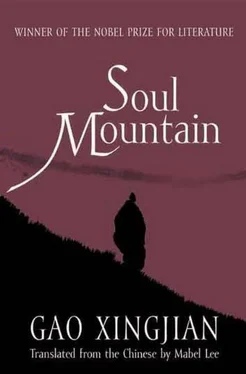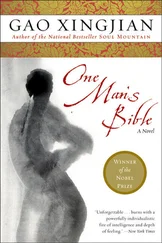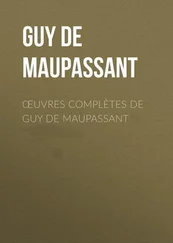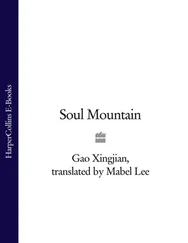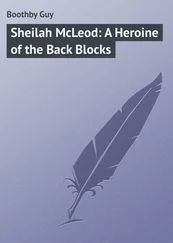I return to my room and sit at the desk by the window, thinking to select and copy some of this folk song material, but again I hear the singing. It seems to be the slow outpouring of irrepressible grief after the pain of excruciating agony has settled. Something odd is happening and I must get to the bottom of it. Is there someone singing or is there something psychologically wrong with me? I look up and hear it behind me, I turn around and it is suspended in the air like a strand of floating silk. A spider web blowing in the wind has form but this is without form, intangible. Tracking the sound, I stand on the armrest of the sofa and at this point discover that it is coming through an air vent above the door. I get a chair and stand on it. The glass vent is spotlessly clean and when I open it the sound goes out into the corridor. I get off the chair and open the door and the sound goes out under the eaves of the balcony. I move the chair out onto the balcony, stand on it, but can’t reach high enough. Below the balcony is the small sunlit cement courtyard where the clothes I washed in the morning hang on a wire. Of course they can’t be singing. I can’t see any tracks in the distance but there seems to be a fence along the mountain which cuts off a stretch of thick tangled undergrowth and brambles on the slope. As I come down from the balcony into the sunlight the sound becomes clearer and seems to be coming from the sun. I squint and look up and in the bright light hear the sharp, heavy thud of metal on stone. I can’t see a thing at first, then when the blinding sun becomes a blue-black image and I shade my eyes with my hand, I see small figures moving about halfway up the mountain on a bare cliff face. The metallic sound is coming from far away over there. I walk towards them and make out that they are quarry workers — one seems to be wearing a red singlet and the others are stripped to the waist and are hardly distinguishable from the brown dynamited cliff face. The sound of their singing flies up into the sunlight with the wind and is sometimes loud and sometimes indistinct.
It occurs to me that I can bring them in for a closer look through the zoom lens of my camera so I go back to my room for it. It is in fact the person in the red singlet who is singing in a voice that sounds like a woman’s high-pitched wailing as he swings a big sledge hammer and keeps time to the sound of a rock drill. The bare-chested man wielding the rock drill seems to be harmonizing with him.
Suddenly the singing stops, they must have seen the sun glinting off my camera. They stop work and look in my direction. There is an absence of any sound and the silence is searing, but I am pleased that I don’t have some psychological disorder and that my hearing is normal.
I return to my room and want to write something, but what can I write about? What about something on the singing of the quarry workers? When I pick up my pen I can’t write a thing.
I think, I’ll try and get them to come for a drink and a chat in the evening — it’d be a way of passing time. I put down my pen and head for the small town.
When I emerge from a little shop with a bottle of brown rice wine and a bag of peanuts, I bump into the friend who lent me the stencilled material. He tells me he has also collected many hand-written copies of mountain folk songs. This is just what I want so I ask him to come for a chat. He’s busy at the moment but promises to come after dinner.
I wait for him until ten o’clock. I am the only guest in the hostel and it is frustratingly quiet. I start regretting not having asked the quarry workers when I suddenly hear knocking on the window. It is my friend. He says he couldn’t get anyone to open the main door, the girls in charge must have locked up and gone to sleep. I take the torch and a paper parcel from him and he climbs in. Nervous with excitement I immediately open the rice wine right away and pour out half a teacup each.
I can’t recall his face but I recall that he was thin and not too tall, that he looked timid but once he started talking there was an enthusiasm which hadn’t been crushed by life. His looks are irrelevant, what delights me is this treasure of his which he opens before me. He unwraps the newspaper parcel. Apart from a few notebooks, these are all badly tattered hand-written texts which used to be circulated among the people. I read through them one by one and when he sees my utter delight, he says magnanimously, “Go ahead and copy any that you like. There used to be lots of folk songs in these mountains. If you found an old master singer, he wouldn’t be able to get through them all if he sang for several days and several nights.”
At this I start asking him about the songs of the quarry workers on the mountain.
“Oh, they’re falsetto singers from Badong,” he says. “The forests on the mountains there have been stripped bare so they’ve had to leave to work in the quarries.”
“Are there also different sets of music and words?”
“There are some books of music but the words are largely improvised, they just sing whatever comes to mind, much of it is quite crude.”
“With lots of coarse swear words?”
“These quarry workers are away all year round and don’t have any women, they take out their frustration on the rocks,” he says with a smile.
“Why is the music so haunting and sad?”
“It’s that sort of music. If you don’t listen to the words it’s like resentful wailing and sounds great, but the words aren’t particularly interesting. Take a look at this.” He takes a notebook from the paper parcel, leafs through to a particular page and hands it to me. Under the heading Record of Darkness is written:
On a good day at a good hour, Heaven and Earth open.
The filial family has asked us, a drummer and a singer,
To lead the singing at the song square.
One two three four five, metal wood water fire earth.
It is not easy to lead the singing,
And we sweat even before we start.
Deep at night when all is quiet a bright moon and stars,
And we get ready to start the singing.
It is late at night to start a long one,
If we start a short one it won’t last till dawn,
We must start one not too long and not too short,
So you the assembled singers will not waste time.
One calling heaven, earth and waters
Two calling the sun, moon and the stars,
Three calling the five directions and the land,
Four calling the goddess of lightning,
Five calling Pan Gu who separated Heaven and Earth,
Six calling the Three Emperors and Five Kings, and all the kings of past ages,
Seven calling the Black Lion and the White Elephant, the Yellow Dragon and the Phoenix,
Eight calling the fierce dogs guarding the gates,
Nine calling sprites of marshes and mountains,
Ten calling tigers, leopards, jackals and wolves,
We ask all of you to stand aside, to give passage,
To the singers entering the song square!
“This is wonderful!” I gasp in praise. “How did you get hold of it?”
“I got this a couple of years ago when I was a primary school teacher in the mountains. I asked an old master singer to sing it while I wrote it down.”
“The language is really beautiful and flows straight from the heart, it isn’t at all constrained by the five-word and seven-word prosody of the so-called folk song genre.”
“Quite right. This is a genuine folk song.” As he drinks, his façade of timidity totally vanishes.
“This is a folk song which hasn’t been vandalized by the literati! It is song gushing straight out of the soul! Do you realize this? You’ve saved a culture! It’s not unique to the smaller nationalities, the Han nationality also has a genuine folk culture which hasn’t been contaminated by Confucian ethical teachings!” I can’t contain my excitement.
Читать дальше
Конец ознакомительного отрывка
Купить книгу
